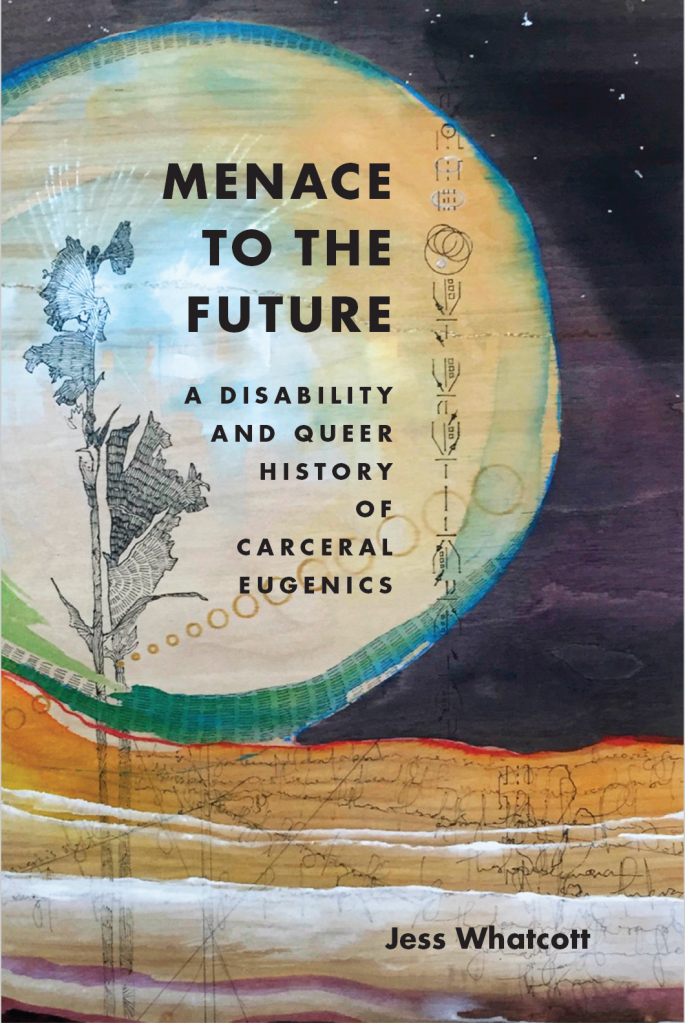

Dr. Jess Whatcott (they/them) is an educator, writer, and abolitionist organizer based in the borderlands of San Diego, California (occupied Kumeyaay land), working towards carceral abolition, disability justice, queer and trans liberation, and a world without borders.
Menace to the Future: A Disability and Queer History of Carceral Eugenics is the recipient of an Honorable Mention for the 2025 Alison Piepmeier Book Prize from the National Women’s Studies Association. The prize honors “a groundbreaking monograph in Women, Gender, and Sexuality studies that makes significant contributions to feminist disability studies scholarship,” and is named in honor of the late writer and teacher Alison Piepmeier.

